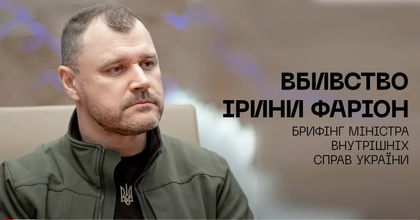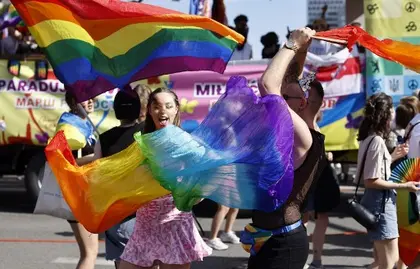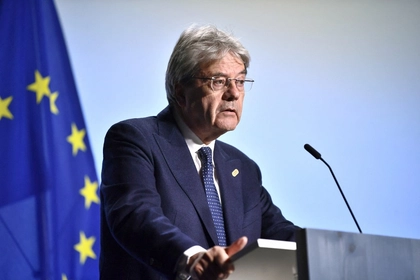In an exclusive interview, Daniel Arnarsson, the Executive Director of the National Queer Organization of Iceland, spoke with Kyiv Post’s Alexandra Klitina about LGBT+ policies implemented in Iceland and the possibility of approving recognition of LGBT+ minorities in Ukraine.
Background
JOIN US ON TELEGRAM
Follow our coverage of the war on the @Kyivpost_official.
In 2015, the Ukrainian parliament approved an anti-discrimination in employment law concerning sexual orientation and gender identity, and in 2016 Ukrainian authorities simplified the transgender transition process for transgender people and began allowing gay and bisexual men to donate blood.
Nevertheless, lesbian, gay, bisexual, and transgender (LGBT+) persons in Ukraine still face legal challenges not faced by non-LGBT+ residents. LGBT+ persons, and households headed by same-sex couples are not entitled to any legal protections available to different-sex couples in Ukraine.
Ukrainian law does not set specific rights for civil partners, meaning if an LGBT+ person fighting on the frontline is injured, their civil partner cannot visit them in hospital.
There is also the issue of popular attitudes which have been evolving away from the traditional response of exclusion to that of acceptance and inclusion.
In May 2022 the Kyiv International Institute of Sociology conducted a survey showing that Ukrainians have become more tolerant of the LGBT+ community over the past six years. More than half of those surveyed had a positive or indifferent attitude towards LGBT+ people, while almost two-thirds of Ukrainians support equality.

Farion’s Killer Prepared Disguises, Had Another Victim in His Sights, Interior Minister Says
By August, a petition on the presidential office's website to legalize same-sex marriage in Ukraine had collected more than the 25,000 votes required. On Aug. 2, President Volodymyr Zelensky responded by asking Prime Minister Denys Shmygal to investigate this possibility.
Interview
First, generally about Iceland and Ukrainians. What is the attitude of the Icelandic public towards Ukraine, especially Russia's war against Ukraine? Do you have any refugees from Ukraine?
The people of Iceland support the people of Ukraine. Iceland, as a nation, condemns the war and the Russian leadership and its actions. We have had demonstrations near the Russian embassy in Reykjavik. More than 2,000 Ukrainian people are here in Iceland, and we are ready to host more. The government expects 4,000 Ukrainians to come to Iceland.
And now a question to you as a LGBT+ activist. What do you think about Russian homophobia? Why do Russians hate LGBT+ so much, in your opinion?
It is a big question for us. I don't know why attacking the LGBT+ community is a significant factor in the Russian community. They have been doing this for a long time and are also attacking freedom of speech. Minorities in Russia cannot express themselves and be free.
Russians don't recognize that LGBT+ people exist – of course, they exist in Russia, but they have to hide. It’s a mystery why it’s so important for Russians to attack this minority group. The way Russia threats minority groups scares us because we saw it before in the Second World War when minority groups were wiped out.
And Putin? On the one hand he flaunts a “macho” image and expresses much homophobia. What’s behind it?
His masculinity is toxic. I think it’s a problem with toxic masculinity and building society out of that would be horrible. Hating women, hating gay people, and everyone who is not a white man – old societies were like that. It's not possible to have it that way anymore.
Maybe Putin is hiding something. I don't know. In Iceland, if you are gay or lesbian, it never even matters anymore. When I meet new people, I tell them I am from Reykjavik, like cooking, and I am gay. I don't emphasize this as a key factor in my life.
What is the official policy regarding LGBT+ in Iceland?
In Iceland in 2010, same-sex marriage was legalized, and such couples can adopt children. You can change your name and gender and can get free medical services for trans people. We protect these people when they seek a job and against discrimination.
Also, the Gender Autonomy Act provides for a person’s right to define their gender, thereby guaranteeing the recognition of their gender identity. Recently, the government adopted the LGBTI (an acronym for Lesbian, Gay, Bisexual, Transgender, and Intersex persons) action plan – 21 actions that the government has promised to implement till 2024.
Was there any resistance to the implementation of these policies in Iceland?
Yes, there was. Two lawmakers opposed these changes, particularly the Gender Autonomy Act when it was introduced to the parliament. They are from the same party and it's a small party. They also oppose refugees. The rest of the 63 lawmakers were supportive. It was a huge victory. Both right and left wings parties supported the bill.
What was the most challenging for implementation of LGBT+ policies in Iceland?
Before same-sex marriage was recognized in 2010, we had a civil union (registered partnerships for same-sex couples) in 1996, which was a huge thing. There was massive opposition from the Iceland National Church and conservative people in general. It took a lot to approve civil union in 1996, and it happened because of support from women's rights organizations.
It was much easier to get same-sex marriage recognized in 2010. At that time, we had the first openly lesbian head of state, Prime Minister Jóhanna Sigurðardóttir, and she could get married.
In 2019 the Gender Autonomy Act was adopted, and it took us six years. There was little resistance because we had long public discussions with state organizations and society. As a result, the bill was approved by the parliament.
Are people in Iceland religious?
Not really: 50 percent of people are agnostics or atheists.
How did Iceland react to having a gay woman leading the country?
In 2010 same-sex couples became a common thing. Everyone knew someone who was gay or lesbian at that time. Iceland's population was proud of having the first openly lesbian head of state. Currently, the minister of welfare is gay himself. Also, there are five people, gay and lesbian, in the parliament.
The president of Reykjavik city council is the first transwoman. We are very proud of that as well.
In your opinion, should Ukraine legalize LGBT+ rights during the war?
It's difficult to say but I think it's always good to show minority groups respect and to recognize them. Maybe marriage is not the first step but it's important to recognize that they exist and give them rights.
It is important for the government to show respect and recognize LGBT+. It shows society's health. If it is something that the Ukrainian government can do during this horrible war, I recommend them doing it.
Living in hiding is not a fruitful life: I wouldn't wish it for anyone. When LGBT+ couples don't have recognition as married people, they can't be together with a loved one in the hospital who could die because they don't have legal status. That is happening in Ukraine right now. LGBT+ minorities who are also probably fighting on the front could get injured or killed. To not have the ability to say goodbye to loved ones is horrible.
I think the people of Ukraine don't want to be like Russians anymore. Maybe recognition of LGBT+ rights would distance Ukraine from Russia and bring even closer to the rest of Europe.Recognizing LGBT+ Rights in Ukraine – Lessons from Iceland
You can also highlight the text and press Ctrl + Enter






